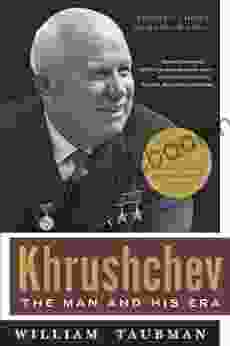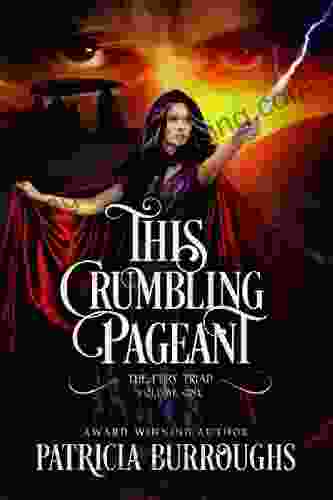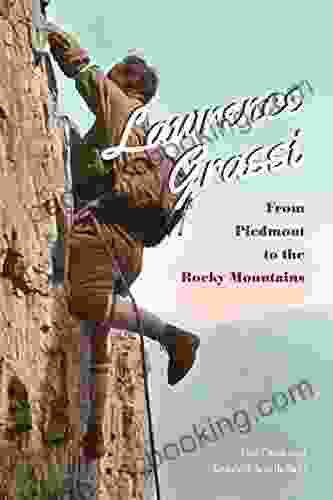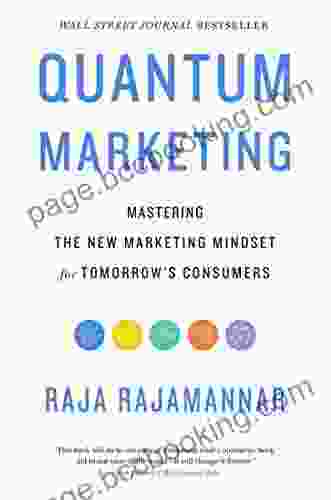Khrushchev the Man and His Era: A Titanic Figure in Soviet History

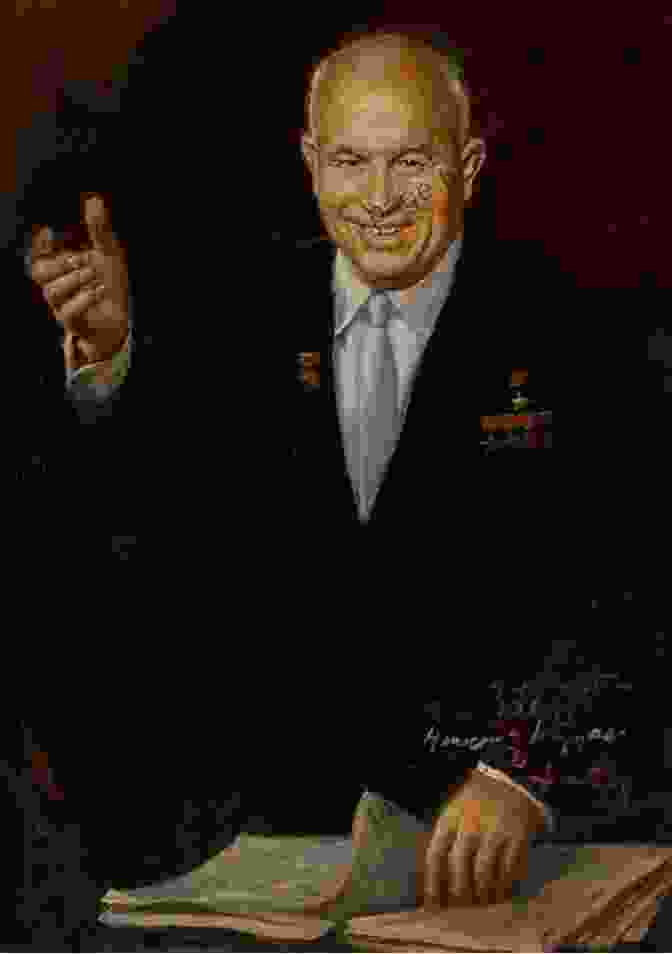
Nikita Khrushchev, the enigmatic and transformative leader of the Soviet Union from 1953 to 1964, remains a towering and controversial figure in history. His era marked a period of profound change and turbulence, leaving an enduring legacy that continues to shape the global landscape today. This comprehensive article delves into the life and times of Khrushchev, exploring his rise to power, his policies, and the impact of his leadership on the Soviet Union and the world.
4.6 out of 5
| Language | : | English |
| File size | : | 11510 KB |
| Text-to-Speech | : | Enabled |
| Screen Reader | : | Supported |
| Enhanced typesetting | : | Enabled |
| Word Wise | : | Enabled |
| Print length | : | 1093 pages |
Early Life and Rise to Power
Nikita Sergeyevich Khrushchev was born into a peasant family in 1894 in the village of Kalinovka, Ukraine. Despite his humble beginnings, he demonstrated a keen intelligence and ambition from a young age. He joined the Bolshevik Party in 1918 and quickly rose through the ranks, serving in various roles during the Russian Civil War.
After the war, Khrushchev held leadership positions in Ukraine and Moscow, gaining a reputation as a skilled administrator and a staunch supporter of Joseph Stalin. In 1953, following Stalin's death, Khrushchev emerged as a leading contender for power in the ensuing power struggle. With his charisma, political maneuvering, and support from key figures in the party, he eventually secured the position of First Secretary of the Communist Party of the Soviet Union.
Domestic Policies: The Thaw and De-Stalinization
Khrushchev's leadership marked a significant departure from the repressive policies of his predecessor. He implemented a series of reforms aimed at improving the lives of ordinary citizens and reducing the excesses of the Stalinist era. One of his most notable initiatives was the "Thaw," a period of cultural liberalization that allowed greater freedom of expression and artistic creativity.
Khrushchev also embarked on a campaign of de-Stalinization, denouncing Stalin's personality cult and exposing the crimes committed during his rule. This policy led to the release of political prisoners, the rehabilitation of victims of the purges, and a reassessment of Soviet history.
Foreign Policy: Coexistence and the Cold War
Khrushchev's foreign policy was characterized by a mix of assertiveness and attempts at détente. He maintained a confrontational stance towards the United States during the Cold War, engaging in a series of high-profile diplomatic crises, including the Berlin Crisis and the Cuban Missile Crisis.
At the same time, Khrushchev also sought to reduce international tensions and promote peaceful coexistence. He met with U.S. President Dwight Eisenhower at the Geneva Summit in 1955 and played a crucial role in the signing of the Partial Nuclear Test Ban Treaty in 1963.
The Cuban Missile Crisis
The Cuban Missile Crisis of 1962 brought the world to the brink of nuclear war. When the United States discovered that the Soviet Union had secretly installed nuclear missiles in Cuba, Khrushchev faced a tense standoff with President John F. Kennedy. After a week of intense negotiations, the two leaders reached a compromise, with the Soviets agreeing to remove the missiles and the United States pledging not to invade Cuba.
The Cuban Missile Crisis demonstrated the grave dangers of nuclear brinkmanship and underscored the importance of diplomatic efforts to prevent nuclear war. Khrushchev's handling of the crisis earned him respect as a skilled negotiator and played a key role in reducing tensions between the superpowers.
Economic Policies and Agricultural Reforms
Khrushchev's economic policies were marked by ambitious plans to boost productivity and increase the standard of living. He introduced a series of reforms aimed at modernizing industry, agriculture, and the scientific sector. However, many of these reforms proved unsuccessful, leading to economic problems and shortages.
In particular, Khrushchev's attempts to increase agricultural production through collectivization and the of new crops resulted in widespread failures. The so-called "Virgin Lands Campaign" led to the destruction of vast areas of fertile land and resulted in a decline in grain output.
Political Struggles and Ousting
Despite his popularity during the early years of his leadership, Khrushchev's later years were marked by growing political opposition. His economic policies, foreign policy setbacks, and the Cuban Missile Crisis eroded his support within the Communist Party.
In 1964, a group of party leaders led by Leonid Brezhnev orchestrated a coup and removed Khrushchev from power. He was replaced as First Secretary by Brezhnev, who reverted to more conservative policies and ended the brief era of liberalization known as the "Thaw."
Legacy: A Complex and Controversial Figure
Nikita Khrushchev's legacy remains a subject of intense debate among historians and political analysts. He is credited with breaking the Stalinist mold and introducing a period of relative openness and reform in the Soviet Union. His efforts to reduce international tensions and prevent nuclear war earned him a measure of respect and admiration on the world stage.
However, Khrushchev's economic policies proved largely unsuccessful, and his agricultural reforms led to economic setbacks. His confrontation with the United States during the Cold War and his handling of the Cuban Missile Crisis raised tensions between the superpowers and brought the world to the brink of nuclear war.
Ultimately, Khrushchev's legacy is a complex and controversial one. He was a man of contradictions, capable of both bold reforms and reckless decisions. His impact on the Soviet Union and the world was profound, and his era remains a fascinating and pivotal period in history.
Nikita Khrushchev was a titanic figure in Soviet history. His leadership marked a period of profound change and turbulence, leaving an enduring legacy that continues to shape the global landscape today. From the Thaw and de-Stalinization to the Cuban Missile Crisis and economic reforms, Khrushchev's policies and actions had a profound impact on the Soviet Union and the world. His complex and controversial legacy remains a subject of ongoing debate, highlighting the enduring importance of his era.
4.6 out of 5
| Language | : | English |
| File size | : | 11510 KB |
| Text-to-Speech | : | Enabled |
| Screen Reader | : | Supported |
| Enhanced typesetting | : | Enabled |
| Word Wise | : | Enabled |
| Print length | : | 1093 pages |
Do you want to contribute by writing guest posts on this blog?
Please contact us and send us a resume of previous articles that you have written.
 Book
Book Novel
Novel Page
Page Chapter
Chapter Text
Text Story
Story Genre
Genre Reader
Reader Library
Library Paperback
Paperback E-book
E-book Magazine
Magazine Newspaper
Newspaper Paragraph
Paragraph Sentence
Sentence Bookmark
Bookmark Shelf
Shelf Glossary
Glossary Bibliography
Bibliography Foreword
Foreword Preface
Preface Synopsis
Synopsis Annotation
Annotation Footnote
Footnote Manuscript
Manuscript Scroll
Scroll Codex
Codex Tome
Tome Bestseller
Bestseller Classics
Classics Library card
Library card Narrative
Narrative Biography
Biography Autobiography
Autobiography Memoir
Memoir Reference
Reference Encyclopedia
Encyclopedia Susan Apps Bodilly
Susan Apps Bodilly Robert Richard
Robert Richard William Finnegan
William Finnegan Phyllis Klotz
Phyllis Klotz Peter Vermeulen
Peter Vermeulen Victoria L Dunckley
Victoria L Dunckley Rachel Roth
Rachel Roth Oscar Ratti
Oscar Ratti Paul Bloom
Paul Bloom Ruth Franklin
Ruth Franklin Tom Woolley
Tom Woolley P C Cast
P C Cast Pietro Matracchi
Pietro Matracchi Oman Sukmana
Oman Sukmana P W Catanese
P W Catanese Sarah Vowell
Sarah Vowell Paul Midler
Paul Midler Tony Jacobsen
Tony Jacobsen Whittaker Chambers
Whittaker Chambers Paul Nardozzi
Paul Nardozzi
Light bulbAdvertise smarter! Our strategic ad space ensures maximum exposure. Reserve your spot today!
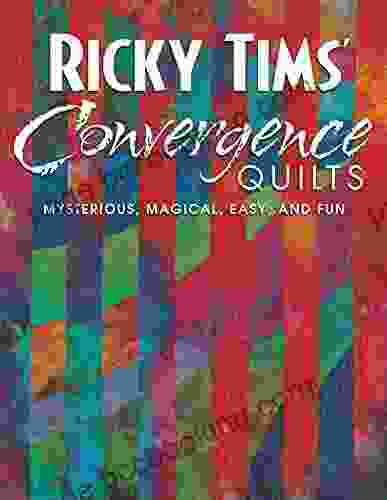
 Johnny TurnerUnlock the Secrets of Magic and Fun: An In-Depth Exploration of Mysterious...
Johnny TurnerUnlock the Secrets of Magic and Fun: An In-Depth Exploration of Mysterious...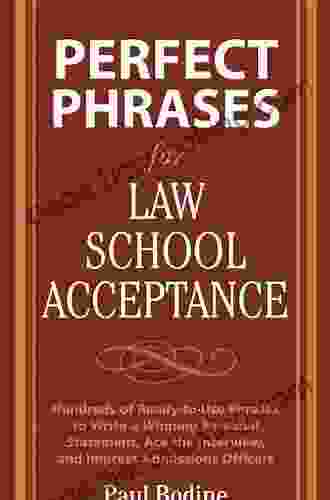
 Aleksandr PushkinHundreds of Ready-to-Use Phrases to Write a Winning Personal Statement and...
Aleksandr PushkinHundreds of Ready-to-Use Phrases to Write a Winning Personal Statement and... Arthur C. ClarkeFollow ·8.9k
Arthur C. ClarkeFollow ·8.9k Denzel HayesFollow ·16.7k
Denzel HayesFollow ·16.7k Philip BellFollow ·14.7k
Philip BellFollow ·14.7k Samuel WardFollow ·8.1k
Samuel WardFollow ·8.1k Fernando PessoaFollow ·7.5k
Fernando PessoaFollow ·7.5k Roberto BolañoFollow ·9.8k
Roberto BolañoFollow ·9.8k Gerald BellFollow ·9k
Gerald BellFollow ·9k Rob FosterFollow ·4.3k
Rob FosterFollow ·4.3k
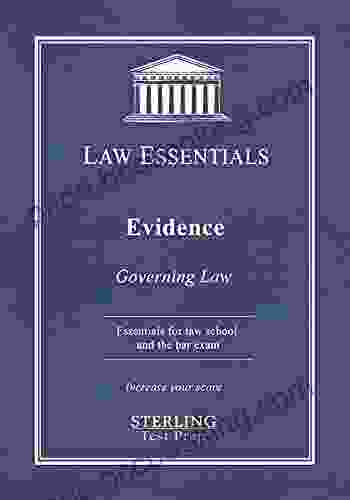
 Marvin Hayes
Marvin HayesGoverning Law for Law School and Bar Exam Prep: Your...
Unlock the Secrets of...
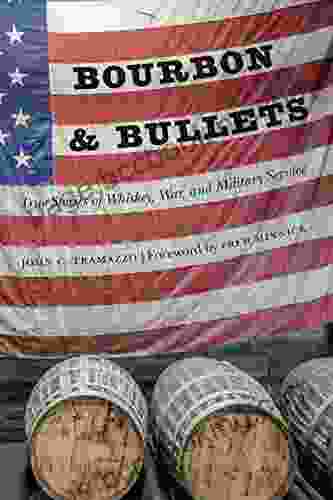
 Sidney Cox
Sidney CoxUnveiling the Epic Tales of Whiskey, War, and Military...
In the tapestry of history,...
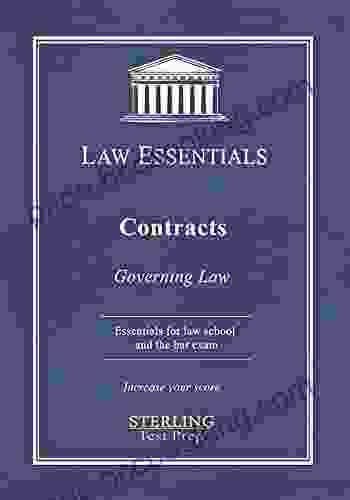
 Victor Turner
Victor TurnerGoverning Law for Law School and Bar Exam Prep: The...
What is Governing...

 Robert Browning
Robert BrowningSterling Test Prep MCAT General Chemistry Practice...
: Embark on Your MCAT General Chemistry...
4.6 out of 5
| Language | : | English |
| File size | : | 11510 KB |
| Text-to-Speech | : | Enabled |
| Screen Reader | : | Supported |
| Enhanced typesetting | : | Enabled |
| Word Wise | : | Enabled |
| Print length | : | 1093 pages |


